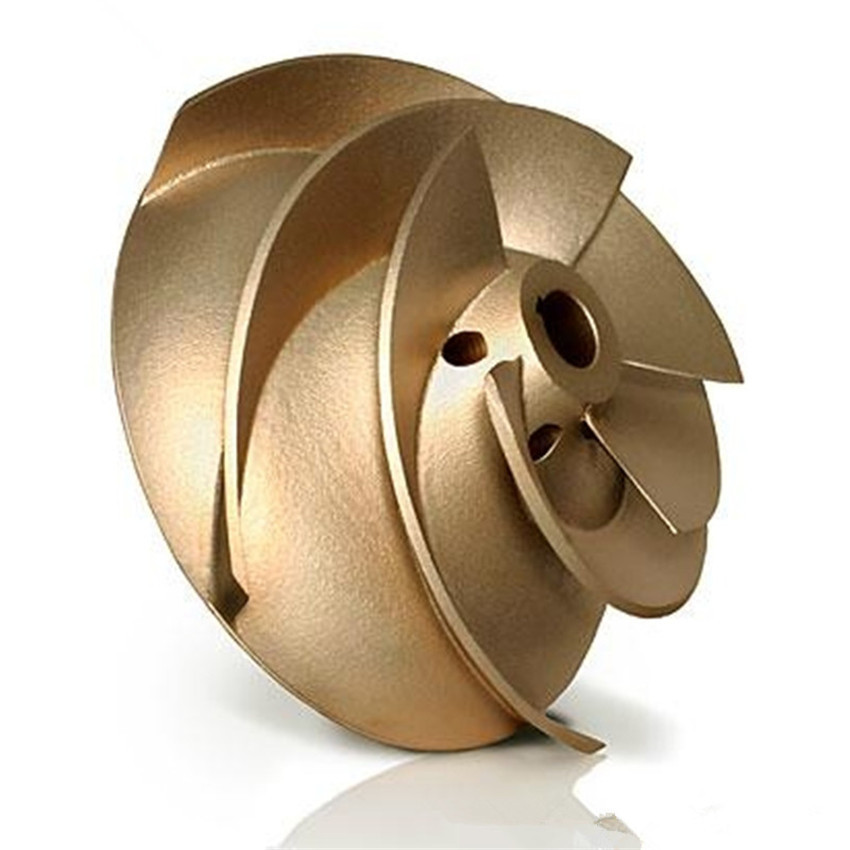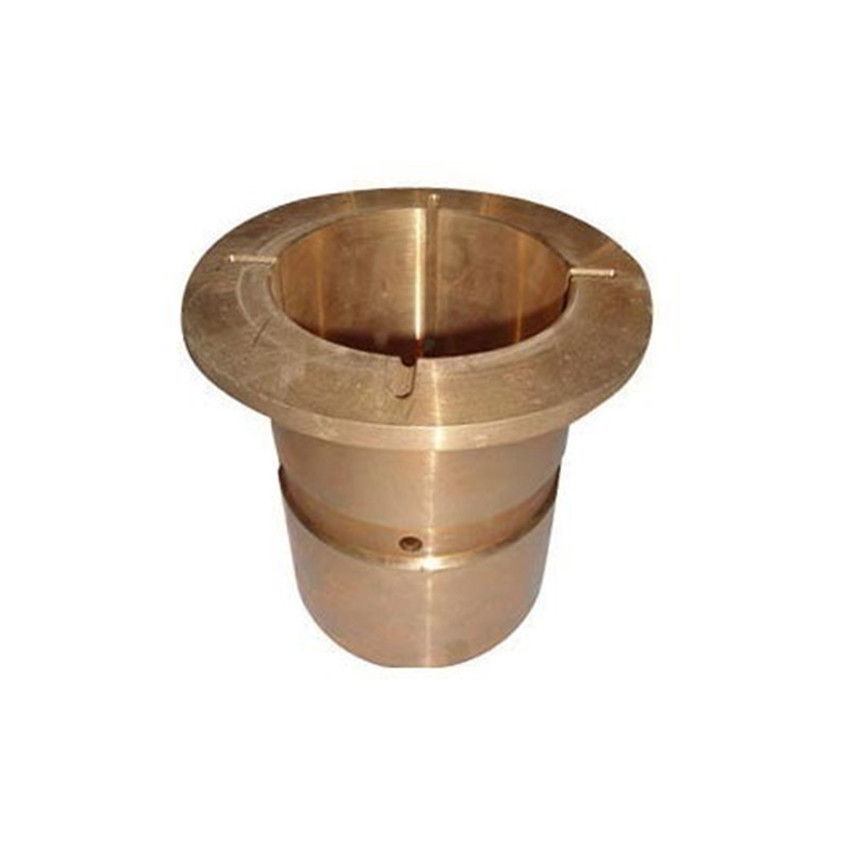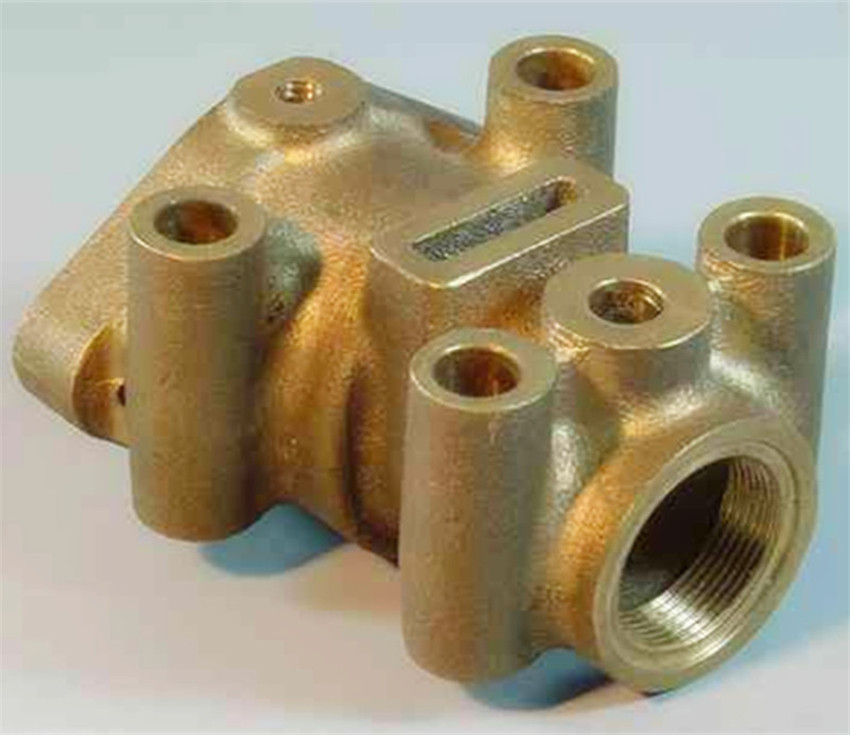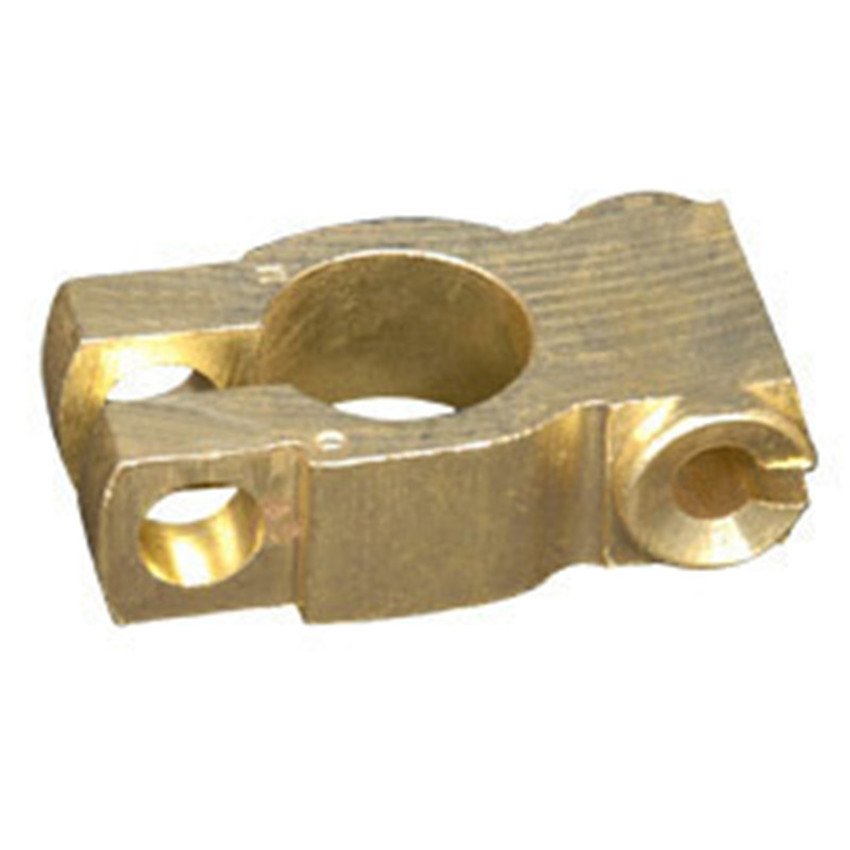Introduction to Brass Casting and Industry Dynamics
In the demanding landscape of modern manufacturing, the selection of robust and reliable components is paramount. This content delves into the critical role of brass casting, a highly versatile metallurgical process essential for producing intricate and durable parts across numerous industrial sectors. Brass, an alloy primarily composed of copper and zinc, offers a unique combination of strength, machinability, corrosion resistance, and aesthetic appeal, making it an ideal material for precision components.
Current Industry Trends in Brass Casting
The global market for brass castings is experiencing significant shifts driven by technological advancements and evolving application requirements. Key trends include:
- Increased Demand for Precision: Sectors like automotive, aerospace, and advanced instrumentation necessitate increasingly tighter tolerances and superior surface finishes. This drives innovation in casting techniques and post-casting machining.
- Sustainable Practices: Environmental regulations and corporate responsibility initiatives are pushing manufacturers towards more eco-friendly processes, including energy-efficient melting, reduced waste generation, and increased use of recycled brass.
- Automation and Digitalization: The adoption of automated pouring systems, robotic finishing, and simulation software (e.g., solidification modeling) is enhancing efficiency, repeatability, and defect reduction in brass casting operations.
- Material Innovation: Development of specialized brass alloys with enhanced properties, such as lead-free brass for potable water applications or high-strength brass for structural components, is expanding the material’s utility.
- Supply Chain Diversification: Geopolitical factors and the need for supply chain resilience are encouraging a diversification of sourcing, with specialized `china brass casting` manufacturers playing a crucial role due to their robust production capacities and competitive advantages.
The Advanced Manufacturing Process of Brass Casting
Producing high-quality brass castings involves a meticulous multi-stage process, leveraging advanced metallurgical techniques to ensure optimal material integrity and dimensional accuracy. Our expertise encompasses various casting methods, tailored to specific part geometries, volumes, and performance requirements.
Detailed Process Flow: From Concept to Component
1. Design & Tooling
Detailed CAD design and simulation (FEA, DFM) precede pattern or mold tooling development. This stage ensures manufacturability and performance optimization. Materials often include copper-zinc alloys such as C85700 (Leaded Red Brass) or lead-free alternatives like C87600 (Silicon Brass) depending on application and regulatory compliance.
2. Mold Creation
Depending on precision and volume, methods like sand casting (for larger, less intricate parts), investment casting (for high precision and complex geometries), or die casting (for high volume, uniform parts) are employed. Investment casting, in particular, offers superior surface finish and tight tolerances for high-precision components.
3. Melting & Pouring
Brass ingots are melted in induction furnaces, carefully controlling temperature and atmospheric conditions to prevent oxidation and ensure consistent alloy composition. The molten brass is then poured into the prepared molds under controlled conditions to minimize turbulence and entrapment of gases.
4. Solidification & Demolding
After pouring, the molten metal cools and solidifies within the mold. Once cooled, the casting is removed from the mold. For sand casting, this involves breaking away the sand; for investment casting, the ceramic shell is broken off. This stage is critical for preventing shrinkage defects and internal stresses.
5. Fettling & Heat Treatment
Excess material (gates, risers, flash) is removed, and the surface is cleaned. Heat treatment processes, such as annealing or stress relief, may be applied to optimize mechanical properties, enhance ductility, and relieve residual stresses, thereby extending the service life of the brass casting.
6. Machining & Finishing
Many brass castings require secondary operations like CNC machining to achieve final dimensional tolerances, threading, or specific surface finishes. Precision CNC machining ensures adherence to stringent specifications, especially for automotive components where tight fits and smooth surfaces are critical.
7. Quality Control & Testing
Each batch undergoes rigorous testing to meet international standards such as ISO 9001, ASTM B584 for Copper Alloy Sand Castings, and ANSI specifications. This includes chemical analysis, mechanical property testing (tensile strength, hardness), dimensional inspection (CMM), and non-destructive testing (X-ray, ultrasonic, dye penetrant) to ensure zero defects and high reliability.
8. Surface Treatment & Packaging
Optional surface treatments like plating (nickel, chrome) or polishing may be applied. Finally, components are carefully packaged to prevent damage during transit, ensuring they arrive ready for integration into higher-level assemblies.

Technical Specifications and Performance Parameters
The performance of brass castings is defined by a range of technical specifications crucial for design engineers and procurement specialists. These parameters ensure the suitability of components for demanding industrial environments. Below is a representative table illustrating typical specifications for High Precision Brass Casting for Auto Parts.
Product Specification Table: High Precision Brass Casting for Auto Parts
| Parameter | Typical Value / Range | Testing Standard |
|---|---|---|
| Material Grade | C87600 (Silicon Brass), C85700 (Leaded Red Brass) | ASTM B584, SAE J461 |
| Tensile Strength (min.) | 310 – 450 MPa (45 – 65 ksi) | ASTM B584, ISO 6892-1 |
| Yield Strength (min.) | 140 – 200 MPa (20 – 29 ksi) | ASTM B584, ISO 6892-1 |
| Hardness (Brinell, HB) | 70 – 120 HB | ASTM E10, ISO 6506-1 |
| Elongation (% in 4D) | 15 – 30% | ASTM B584, ISO 6892-1 |
| Density | ~8.3 – 8.5 g/cm³ | ASTM E1019 |
| Corrosion Resistance | Excellent against fresh/salt water, mild acids | ASTM B117 (Salt Spray) |
| Dimensional Tolerance (Investment Casting) | ±0.005 in/in or ±0.13 mm/mm (non-critical) | ISO 8062-3, VDG P690 |
| Surface Finish (as-cast) | Ra 3.2 – 6.3 µm (investment casting) | ASME B46.1 |
| Operating Temperature | -40°C to +200°C | Application specific |
These specifications highlight the material’s capability to withstand demanding operational conditions, particularly relevant for automotive parts that experience significant thermal cycling, mechanical stress, and exposure to various fluids.

Application Scenarios and Technical Advantages
The inherent properties of brass make it an indispensable material for a vast array of industrial applications. Its combination of machinability, corrosion resistance, and good thermal/electrical conductivity positions brass castings as a preferred choice over other alloys in critical sectors.
Typical Target Industries and Components
- Automotive: Brake system components (calipers, cylinders), transmission parts, fuel system connectors, electrical terminals, and sensor housings. Brass offers excellent fatigue strength and resistance to corrosive automotive fluids.
- Petrochemical & Oil/Gas: Valve bodies, fittings, pump components, and instrumentation parts requiring resistance to harsh chemicals, high pressure, and corrosive environments. Its inherent corrosion resistance extends service life and reduces maintenance.
- Water Supply & Drainage: Faucets, pipe fittings, valve components, and pump housings, especially for potable water systems where lead-free brass is critical. The smooth internal surfaces of brass also contribute to energy saving by reducing flow friction.
- Metallurgy & Heavy Industry: Bearings, bushings, wear plates, and other components requiring high wear resistance and structural integrity under heavy loads.
- Electrical & Electronics: Connectors, switchgear components, heat sinks, and various electrical housings where excellent electrical conductivity and non-sparking properties are crucial.
- Marine: Propellers, seacocks, valves, and other components exposed to saltwater, leveraging brass’s superior resistance to galvanic corrosion and biofouling.
Demonstrable Advantages in Application Scenarios
- Superior Corrosion Resistance: Brass forms a protective patina layer, making it highly resistant to oxidation, rust, and various corrosive media, significantly prolonging the service life of components in challenging environments.
- Excellent Machinability: Its inherent machinability allows for complex geometries and tight tolerances to be achieved post-casting, reducing machining time and costs, particularly beneficial for custom brass casting requirements.
- High Strength and Ductility: Brass offers a robust balance of strength and ductility, capable of withstanding significant mechanical stress and pressure while retaining form under various operating conditions.
- Electrical and Thermal Conductivity: These properties are vital for electrical connectors and heat exchangers, ensuring efficient performance and heat dissipation.
- Energy Saving: For fluid handling components, the smooth as-cast surfaces and inherent corrosion resistance minimize friction and scaling, thereby reducing pump energy consumption over the operational lifetime.
- Aesthetic Appeal: The distinctive golden luster of brass is valued in decorative and architectural applications, providing both functionality and visual appeal.

Vendor Comparison and Strategic Sourcing of Brass Castings
Selecting the right brass casting vendor is a critical strategic decision that impacts product quality, cost-efficiency, and supply chain reliability. A thorough evaluation process considering various factors is essential for B2B procurement professionals.
Key Factors for Vendor Evaluation
- Quality Certifications: Adherence to international standards like ISO 9001, IATF 16949 (for automotive), and specific material certifications (e.g., ASTM, DIN, JIS) demonstrates a commitment to quality.
- Experience and Track Record: A vendor’s years in service and proven history of successful projects, particularly in relevant industries (e.g., automotive, petrochemical), speak volumes about their expertise. Our firm has over two decades of specialized experience in high-precision metal casting.
- Technical Capabilities: Evaluate the range of casting methods offered (sand, investment, die casting), in-house CNC machining, finishing capabilities, and advanced simulation tools.
- Material Expertise: The ability to work with a diverse range of brass alloys (lead-free, high-strength, etc.) and provide metallurgical guidance is a significant advantage.
- Lead Times and Fulfillment: Assess typical lead times for prototyping and production runs, as well as their capacity for large-volume orders and on-time delivery.
- Customization Support: For unique applications, the vendor’s ability to offer comprehensive design, engineering, and custom brass casting solutions is crucial.
- Cost-Effectiveness: While not the sole determinant, competitive pricing coupled with high quality and reliable service offers the best long-term value. Leveraging the efficiencies of `china brass casting` operations can provide significant cost benefits without compromising quality.
- After-Sales Support & Warranty: Clear commitments on warranty, customer service, and technical support post-delivery are indicative of a reliable partner.
Comparative Advantages of Specialized Brass Casting Manufacturers
| Feature | Specialized Foundry (e.g., Mingda Metals) | Generalist Foundry |
|---|---|---|
| Precision & Tolerances | Consistently achieves VDG P690 Grade D5-D7 for investment casting. | Typically VDG P690 Grade D8-D10 or coarser for similar processes. |
| Material Specialization | Expertise in lead-free brass (e.g., C87600), high-strength alloys, and custom compositions. | Limited range of standard brass alloys. |
| Quality Assurance | Comprehensive in-house NDT (X-ray, CMM), dedicated QA team, IATF 16949 certified. | May rely on external testing, basic dimensional checks, ISO 9001 only. |
| Engineering Support | DFM, FEA, solidification simulation, collaborative design process. | Basic design review, limited simulation capabilities. |
| Lead Time (Prototyping) | 4-6 weeks (dependent on complexity). | 6-10 weeks or longer. |
| Cost-Efficiency for Complex Parts | Optimized processes reduce overall part cost through less post-processing. | Higher total cost due to more post-machining or rework. |
Customized Solutions and Real-World Application Case Studies
The demand for bespoke components tailored to unique operational parameters is growing. Our expertise lies in delivering comprehensive custom brass casting solutions, guiding clients from initial concept through to final production.
Our Customization Process
- Consultation & Requirements Analysis: Understanding specific application, material requirements, environmental conditions, and performance metrics.
- Design & Engineering: Collaborative CAD/CAM design, material selection, and process optimization using advanced simulation tools to ensure manufacturability and performance.
- Prototyping & Validation: Rapid prototyping and rigorous testing of initial samples to validate design, material properties, and dimensional accuracy.
- Tooling & Production: Development of custom molds and efficient production runs, adhering to strict quality control protocols at every stage.
- Post-Processing & Assembly: Comprehensive post-casting services including CNC machining, surface finishing, and assembly as required.

Case Study 1: High-Pressure Valve Body for Petrochemical Industry
Challenge: A major petrochemical client required a complex valve body capable of withstanding extreme pressures (up to 3,000 psi) and corrosive chemical exposure at elevated temperatures, with an expected service life of over 15 years. Existing components experienced premature failure due to stress corrosion cracking.
Solution: We developed a custom brass casting using a proprietary high-strength, dezincification-resistant brass alloy (similar to C87600). Utilizing investment casting for its superior dimensional accuracy and smooth internal finish, followed by specialized heat treatment and precision CNC machining, we produced valve bodies that met the client’s stringent requirements.
Outcome: The new brass valve bodies demonstrated exceptional performance in field trials, exceeding the specified pressure ratings and showing no signs of corrosion after extensive chemical exposure. This led to a 40% reduction in maintenance costs and significantly improved operational safety for the client. Our average service life for such components is typically 20-25 years.
Case Study 2: Precision Braking Component for Electric Vehicles
Challenge: An innovative EV manufacturer sought lightweight, high-precision components for a novel electro-hydraulic braking system. The parts required excellent thermal conductivity, consistent mechanical properties, and tight tolerances (±0.05 mm) across high production volumes. Aluminum components previously used exhibited insufficient wear resistance.
Solution: Leveraging our advanced `china brass casting` capabilities, we proposed a specialized silicon brass alloy (C87600) for its superior wear resistance and thermal properties. Through meticulous mold design and highly controlled investment casting, followed by multi-axis CNC machining, we achieved the required geometric complexity and surface finish.
Outcome: The resulting brass components integrated seamlessly into the EV braking system. The client reported enhanced braking performance, reduced noise, and a projected service life increase of 25% compared to previous materials. Our ability to scale production while maintaining consistent quality secured a long-term partnership with the EV manufacturer, delivering over 500,000 units annually.

Trustworthiness & Customer Support
Our commitment extends beyond delivering high-quality brass castings; we aim to build lasting trust through transparent processes, reliable support, and robust guarantees.
Frequently Asked Questions (FAQ)
- Q: What are the primary advantages of brass casting over other metal casting methods?
- A: Brass offers superior corrosion resistance, excellent machinability, good electrical and thermal conductivity, and a pleasing aesthetic. It’s ideal for parts requiring durability in demanding environments and precision finishing.
- Q: Can you produce lead-free brass castings for potable water applications?
- A: Yes, we specialize in lead-free brass alloys (e.g., C87600 Silicon Brass) that comply with regulations such as the Safe Drinking Water Act (SDWA) and NSF/ANSI 61 standards, ensuring safety for water contact components.
- Q: What testing and quality control measures do you implement?
- A: Our comprehensive QA includes chemical analysis, mechanical property testing (tensile, hardness), dimensional inspection (CMM), and non-destructive testing (X-ray, ultrasonic) in accordance with ISO 9001 and IATF 16949 standards.
- Q: What is your typical lead time for custom brass casting projects?
- A: Lead times vary based on complexity and volume. For prototyping, it generally ranges from 4-6 weeks after design approval. Production runs typically follow at 6-10 weeks, depending on order size and material availability. Expedited options are available upon request.
Lead Time and Fulfillment
We maintain efficient production schedules to meet stringent project timelines. Our typical lead times for new tooling and samples range from 4 to 6 weeks, with subsequent production runs typically completed within 6 to 10 weeks, depending on volume and complexity. We utilize advanced planning systems to ensure on-time delivery and provide real-time updates on order status. Our logistics team ensures secure and efficient global shipping to your specified destination.
Warranty Commitments
All our brass castings are backed by a comprehensive warranty, guaranteeing freedom from material defects and workmanship flaws for a period of [e.g., 1 to 5 years, depending on product] from the date of shipment, under normal operating conditions and proper installation. Full warranty details are provided with each order, underscoring our confidence in product quality and reliability.
Dedicated Customer Support
Our dedicated customer support team is available to assist with technical inquiries, order tracking, and any post-delivery concerns. We provide expert guidance from initial consultation through to after-sales service, ensuring a seamless and satisfactory experience.
- Technical Assistance: Our engineering team offers ongoing support for integration and application queries.
- Responsive Communication: We are committed to prompt responses to all client communications.
- Global Reach: Supporting clients worldwide with localized expertise where possible.
Conclusion
The strategic importance of high-quality brass casting cannot be overstated in today’s industrial ecosystem. From the intricate requirements of the automotive sector to the demanding environments of petrochemical and water management industries, brass continues to prove its value through superior performance, longevity, and versatility. By partnering with a specialized manufacturer like Mingda Metals, equipped with advanced technologies, stringent quality control, and a deep understanding of metallurgical science, businesses can ensure the consistent supply of reliable, precision-engineered brass components tailored to their exact specifications. Our commitment to expertise, experience, authoritativeness, and trustworthiness makes us the ideal choice for your next custom brass casting project.
References
- American Society for Testing and Materials (ASTM) Standards.
- International Organization for Standardization (ISO) Standards.
- Society of Automotive Engineers (SAE) International Standards.
- Copper Development Association (CDA) Technical Reports.
- The Association of German Foundrymen (VDG) Guidelines.
Hebei Mingda International Trading Company is a trading company which is specialized in castings, ODM Ductile Iron Manhole Cover forgings and machinery parts.Our products include all kinds of raw castings to be made of ductile iron , grey iron , brass , stainless steel and aluminums, machined castings and forged parts .ODM Ductile Iron Covers To make these parts according to the customers’Custom Iron Casting drawings , we have relative suitable production craft and equipments, such as resin sand , sand mould , hot core boxes , lost-wax , lost –foam and so on Iron Casting Manufacturer Custom.Specially for hydrant bodies and valves’Ductile Iron Manhole Cover Manufacturer bodies, we have collected rich experience for these products in the past 16 year’s actual production, Now we are proud of our products with good surface and high quality material. Iron Casting ManufacturerWhatever,we have been trying our best to provide our customers with better quality castings by improving production crafts and more careful quality control.Cast Iron Castings Manufacturer|super blog